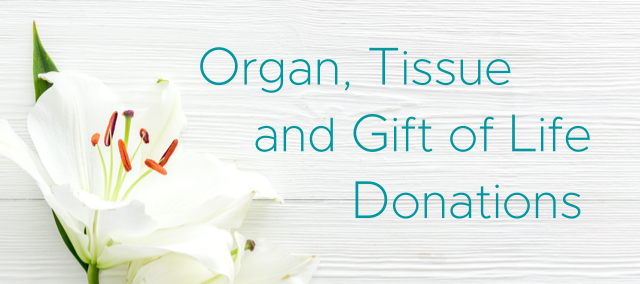
Organ donation is an incredible gift that has a profound life changing outcome for the recipient. According to the Canadian Blood Services, there are roughly 4400 Canadians waiting for a lifesaving organ or tissue transplant, however, not everyone who needs a vital organ receives the transplant.
Who can become an organ donor?
Most people can become organ donors regardless of their age or pre-existing medical conditions, each person’s medical history will be evaluated thoroughly to determine eligibility. People with neurofibromatosis can donate their blood and organs to other people who are in need of blood or organ transplants. The person who receives their blood and/or organs will not develop NF1 as a result of the donation.
How can you become an organ donor in British Columbia?
If you are interested in learning more about organ and tissue donation in British Columbia and if you would like to register to become a donor, please visit Transplant BC.
Can people with cancer donate organs?
While people with cancer are generally not able to donate organs, people with an encapsulated brain tumour can. The one exception is if they’ve had any surgery or biopsy relating to the tumour. The breaking of the blood-brain barrier could potentially transmit cancer cells elsewhere, making the risk too great.
TISSUE AND ORGAN DONATION FOR MEDICAL RESEARCH:
Some patients and their families have expressed a keen interest in making the ultimate gift of life for the benefit of advancing medical research and for educating health care professionals on rare diseases such as neurofibromatosis. The patients have chosen to donate their organs, tissue samples and sometimes their entire body after their passing. This is an incredibly selfless and humanitarian decision that needs a thorough discussion with loved ones before proceeding.
WHERE CAN I DONATE TISSUE FOR MEDICAL RESEARCH?
THE JOHNS HOPKINS NF1 BIOSPECIMEN REPOSITORY (Maryland, USA):
This lab accepts and banks tissue from individuals with NF1. Tumours, tissue, blood and autopsy specimens are received from people with NF1, including MPNST and plexiform neurofibromas. The goal of this lab is to increase availability of NF tissues for the research community. For more information about The Johns Hopkins Biospecimen Repository, please visit them here.
BRAIN TUMOUR FOUNDATION OF CANADA TISSUE BANK:
This Ontario tissue bank has been collecting human tissue since 1991. The tumour specimens are supplied to qualified researchers in the hopes of discovering the causes of and cures for brain tumours. For more information, please visit http://www.braintumourbank.com/.
STANFORD UNIVERSITY (Stanford, California, USA):
This university is currently in the process of setting up a brand new Research Autopsy Program, where national and international patients will be able to sign up to donate postmortem tissue at autopsy. Please check their website for updates on this Research Autopsy Program.
GFAC (Gift From A Child):
Stanford University has partnered with GFAC to receive brain cancer tissue donations from patients across Canada. Each center has Tissue Patient Navigators that guide families throughout this entire process of donating cancer tissue for medical research. To receive information about donating, call 1-844-456-GIFT or email info@GiftfromaChild.org.
A GIFT OF LIFE: INFORMATION ABOUT DONATING YOUR BODY TO SCIENCE:
In Canada, people can donate their body to science by bequeathing their body to one of the medical universities across the provinces. There are several medical schools in Canada that accept body donations. The medical university in your province ordinarily covers all costs for collecting a donated body, the cremation of remains, and the return of cremated remains to the family, although arrangements may vary, so it is advisable to check directly with the medical school in question.
The Body Donation Program in the Faculty of Medicine at the University of British Columbia (UBC) has been in service since 1950. Many iindividuals have donated their bodies for the purpose of anatomical study and medical research making a very valuable contribution to the education of health care professionals and the people they care for.
WHAT IS THE PROCESS FOR BODY DONATION IN BRITISH COLUMBIA?
Body donation can be made at the time of death, or a bequeathal can be made as part of a last will and testament. Enrolling in a Body Donation Programme can be a way of ‘gifting life’, and also removes the burden of making this decision from loved ones’ at a time of loss. The process for body donation in British Columbia begins with completing the registration and consent.
To obtain more information in regard to donating your body to science, contact: UBC Department of Cellular and Physiological Sciences, at: body.program@ubc.ca.
To register for this gift of life donation please visit here.
